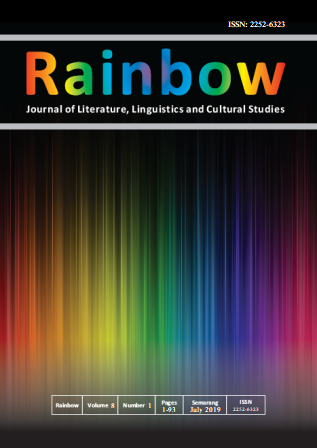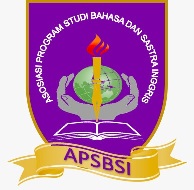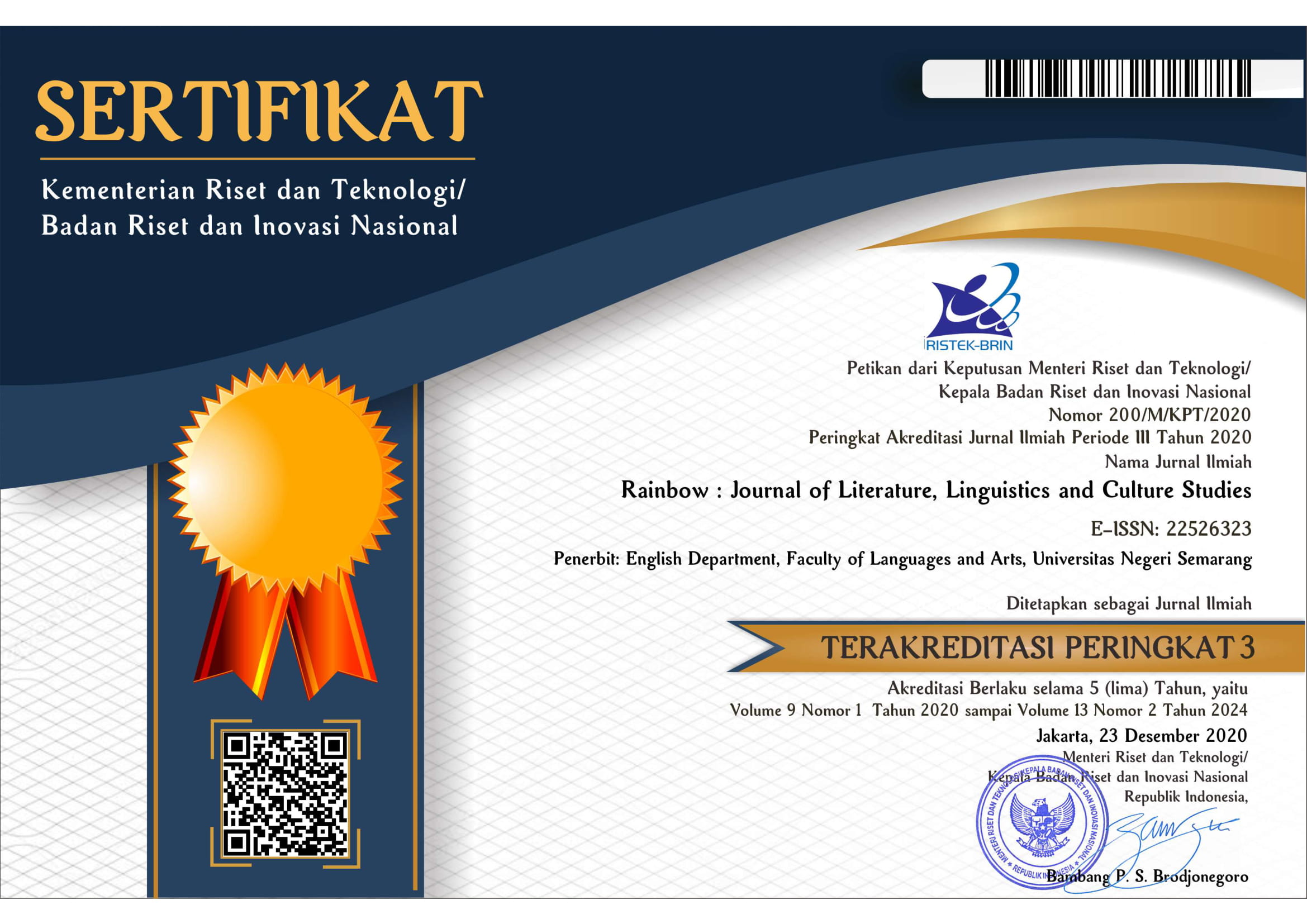Oscar Wilde's Writing Style in "The Happy Prince" in View of Transitivity Analysis
Abstract
This study was aimed to discover the types of processes used and how they influence the author’s writing style in Oscar Wilde’s short story entitled “The Happy Princeâ€. The methodology used in this study was descriptive-qualitative so the analysis was presented in the form of words, phrases, sentences, and utterances. The study focused on discourse analysis employing ideational function approach, which analyzed the short story from the point of view of linguistics especially Transitivity, a theory developed by M. A. K. Halliday. As a result, there were seven types of processes found in the story namely material, mental, behavioral, verbal, relational, existential, and meteorological. The results of the study showed that material process was the most frequently used process (37%) conducted by the author. Yet, the six others were each employed for about 1% - 25%. This indicated that the use of the type of process influenced the writing style of the author in constructing the story where the different process emphasized different portrayal. The use of material process as the most dominant process might reflect the author’s eagerness to do what he cannot do in his real life. However, it was also supported by the author’s previous career and achievement as a journalist, editor, and critic before he wrote the story. Ultimately, the researcher found that Oscar Wilde’s writing style incorporates the vivid descriptions, aesthetic appearance, conversational style, repetitive pattern, simple and clear language.
Keywords: Oscar Wilde, Writing Style, Discourse Analysis, Ideational Meaning, Transitivity







